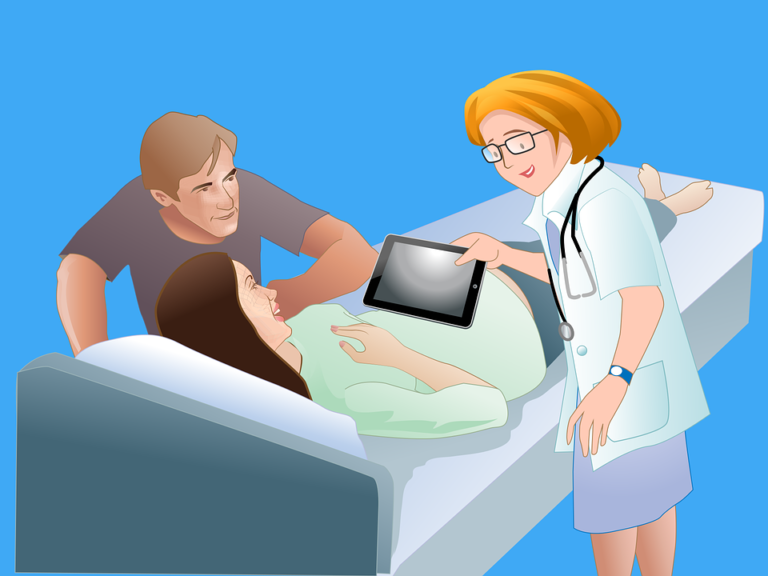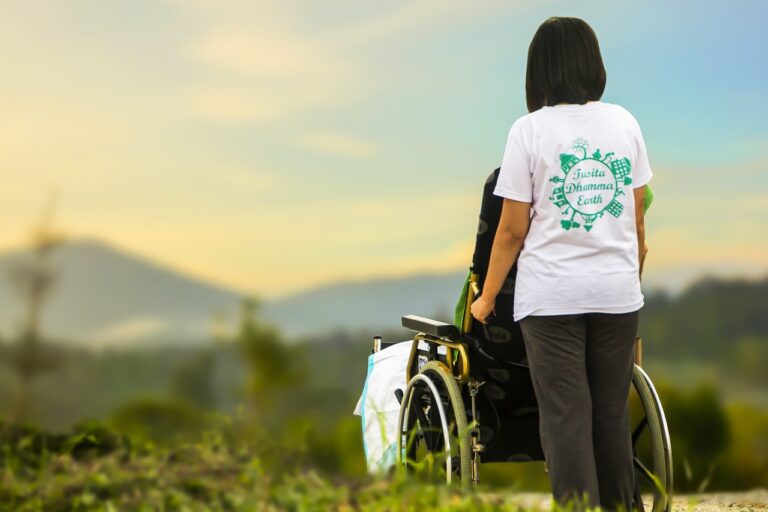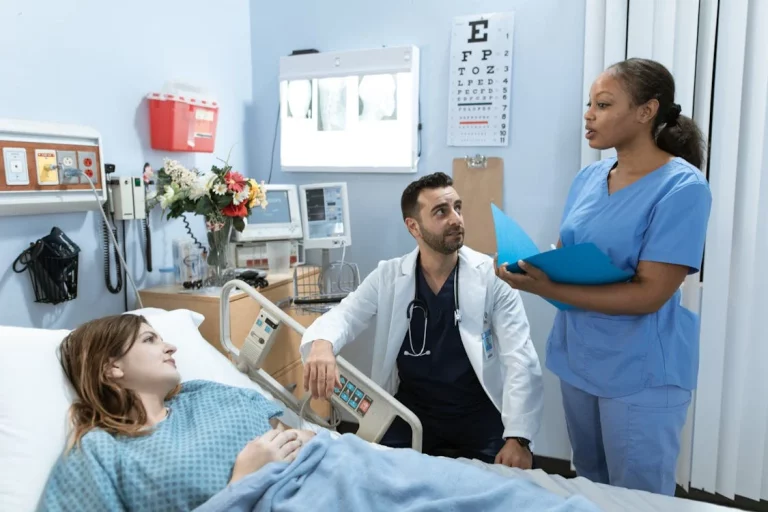Book Appointment Now

The Contribution of Forensic Nurses in the Criminal Justice System
The Contribution of Forensic Nurses in the Criminal Justice System highlights the vital role these specialized professionals play in bridging healthcare and law enforcement. Forensic nurses are uniquely positioned to combine their medical expertise with legal knowledge, offering critical support to victims of crime and assisting in criminal investigations. Their responsibilities extend from collecting and preserving evidence to providing expert testimony in court, all while delivering compassionate, patient-centered care. This field exemplifies the intersection of two distinct domains—healthcare and justice—and underscores the importance of a multidisciplinary approach in addressing violence and trauma. This essay delves into the multifaceted roles of forensic nurses, the skills they require, the challenges they face, and their transformative impact on the criminal justice system.
Our nursing experts can deliver 100% custom paper about the role of forensic nurses in criminal justice system according to your order instructions.
Write my nursing essay
The Multifaceted Roles of Forensic Nurses
Forensic nurses are integral to various aspects of healthcare and criminal investigations, making their roles diverse and impactful.
Sexual Assault Nurse Examiners (SANEs)
One of the most prominent roles within forensic nursing is that of Sexual Assault Nurse Examiners (SANEs). These specialized nurses handle cases involving sexual assault victims by performing comprehensive forensic examinations and collecting critical evidence, such as biological samples, clothing, and photographs of injuries. Research shows that the involvement of SANEs improves the quality of evidence collection and leads to higher prosecution rates in sexual assault cases (Campbell et al., 2020). SANEs also provide emotional support to victims, guiding them through the legal process and connecting them to necessary resources.
Death Investigation
Forensic nurses frequently collaborate with medical examiners and coroners in death investigations. They examine bodies to identify injuries, determine the cause and manner of death, and collect trace evidence. This role is particularly vital in cases of suspected homicide, child abuse, or elder neglect. By combining their medical expertise with investigative techniques, forensic nurses ensure that crucial evidence is not overlooked (Harrington et al., 2018).
Domestic Violence and Elder Abuse
Forensic nurses are often involved in assessing and documenting cases of domestic violence and elder abuse. They identify patterns of injury, evaluate living conditions, and work closely with law enforcement and social services to protect victims. In cases involving vulnerable populations, such as children and the elderly, forensic nurses play a pivotal role in advocating for their safety and well-being (McGuire & London, 2019).
Skills and Expertise Required in Forensic Nursing
Forensic nursing demands a unique blend of medical, legal, and interpersonal skills to navigate the complex intersection of healthcare and the criminal justice system effectively. Beyond standard nursing competencies, forensic nurses must master additional areas to ensure they can provide high-quality patient care while also fulfilling legal requirements. Below is an in-depth exploration of the key skills and expertise essential for forensic nursing.
Advanced Clinical Knowledge and Technical Proficiency
Forensic nurses must possess advanced medical knowledge to accurately assess, treat, and document injuries. Their ability to identify patterns of trauma is critical in cases involving abuse, assault, or homicide. For instance, forensic nurses are trained to distinguish between injuries caused accidentally and those resulting from intentional harm. They often use specialized tools such as alternate light sources for detecting bruises or lacerations invisible to the naked eye (Harrington et al., 2018). Additionally, proficiency in collecting biological samples—such as DNA, blood, and hair—is vital to ensuring evidence integrity for legal proceedings.
Legal Knowledge and Documentation Skills
Forensic nurses must understand legal principles, including the chain of custody, evidence preservation, and court procedures. Their meticulous documentation of findings—such as detailed injury descriptions, photographs, and forensic reports—plays a crucial role in the admissibility of evidence in court. Any error in documentation can compromise a case, which is why legal training is a fundamental aspect of forensic nursing education (Ledray, 2019). Furthermore, forensic nurses often testify as expert witnesses, where their ability to present medical findings clearly and confidently can influence legal outcomes.
Ethical Decision-Making
Navigating ethical dilemmas is a core aspect of forensic nursing. For instance, balancing patient confidentiality with mandatory reporting requirements can be challenging. Forensic nurses must also maintain impartiality, ensuring that their work supports justice without bias toward either party involved in a case (McGuire & London, 2019). Additionally, they must avoid re-traumatizing victims during evidence collection by adhering to trauma-informed care practices.
Emotional Resilience and Trauma-Informed Care
Forensic nurses often work with patients who have experienced severe trauma, such as victims of sexual assault, domestic violence, or human trafficking. Emotional intelligence and resilience are critical for providing compassionate care while maintaining professional boundaries. Trauma-informed care emphasizes understanding the psychological impact of violence on patients and tailoring interventions to avoid retraumatization. For example, forensic nurses are trained to explain each step of the evidence collection process to victims, ensuring they feel safe and respected throughout the procedure (Campbell et al., 2020).
Interdisciplinary Communication and Collaboration
Forensic nurses serve as a bridge between healthcare providers, law enforcement, and the legal system. Effective communication is crucial when liaising with police officers, attorneys, and social workers. For instance, they may need to explain medical findings to non-medical professionals or provide guidance on the proper handling of evidence. Additionally, forensic nurses often collaborate with community organizations to provide victims with access to resources such as counseling and shelter services (Harrington et al., 2018).
Cultural Competence
Working with diverse populations requires cultural sensitivity and awareness. Forensic nurses must understand how cultural, social, and religious factors influence patients’ perceptions of violence and their willingness to seek help. For example, cultural stigmas surrounding sexual assault may deter some victims from coming forward. In such cases, forensic nurses play a critical role in fostering trust and ensuring that patients feel supported and understood (McGuire & London, 2019).
Technological Proficiency
The integration of technology in forensic nursing is becoming increasingly important. Forensic nurses use digital tools for documenting injuries, analyzing evidence, and maintaining patient records. Familiarity with technologies such as digital photography, forensic imaging software, and electronic medical records ensures accuracy and efficiency in their work. Additionally, advancements in forensic science—such as DNA analysis—require nurses to stay updated on emerging technologies to enhance their practice (Ledray, 2019).
Advocacy and Education
Forensic nurses are not only caregivers but also advocates for victims of crime. They educate patients about their rights, connect them to resources, and ensure their voices are heard in legal proceedings. Advocacy extends to broader community outreach efforts, where forensic nurses raise awareness about violence prevention and the importance of early intervention. For example, forensic nurses may conduct workshops on recognizing signs of abuse or provide training for law enforcement on handling trauma cases sensitively (Campbell et al., 2020).
By mastering these diverse skills, forensic nurses become indispensable in bridging the gap between healthcare and the criminal justice system. Their expertise not only enhances patient care but also contributes significantly to the integrity of legal investigations.
Challenges Faced by Forensic Nurses
While forensic nursing offers a unique opportunity to positively impact both healthcare and justice, it also presents substantial challenges. These hurdles demand resilience, adaptability, and institutional support to ensure that forensic nurses can perform their duties effectively.
Emotional and Psychological Toll
Forensic nurses are often exposed to highly traumatic cases, including sexual assaults, child abuse, domestic violence, and homicides. This consistent exposure to violence and suffering can lead to emotional exhaustion, compassion fatigue, and even secondary traumatic stress. Studies reveal that many forensic nurses experience burnout due to the weight of their responsibilities (Harrington et al., 2018). Addressing this issue requires access to mental health resources, structured debriefing sessions, and peer support systems. Institutions can mitigate these effects by providing regular counseling services and promoting a workplace culture that prioritizes mental well-being.
Limited Resources
A major challenge in forensic nursing is the lack of adequate resources in many healthcare settings. Forensic nurses often encounter insufficient funding, outdated equipment, and a lack of specialized training programs, particularly in rural or underserved areas. Without proper tools, such as forensic imaging systems or secure evidence storage facilities, the quality of evidence collection and patient care may be compromised (McGuire & London, 2019). To address these limitations, healthcare facilities must invest in modern forensic technologies and allocate resources to establish training and certification programs tailored to forensic nursing.
Legal Complexities
Forensic nurses operate within the highly regulated intersection of healthcare and law, where legal complexities abound. Navigating the judicial system, preparing for court appearances, and dealing with conflicting testimonies can be intimidating and time-consuming. Ensuring evidence admissibility often requires meticulous attention to detail, as even minor documentation errors can jeopardize a case (Ledray, 2019). To manage these complexities, forensic nurses must undergo legal training that enhances their understanding of judicial processes and equips them to confidently testify as expert witnesses.
Workforce Shortages
Forensic nursing is a specialized field, and the demand for qualified professionals often outpaces the supply. This shortage places an added burden on existing forensic nurses, who may face overwhelming workloads and limited time for thorough assessments or evidence collection. Additionally, fewer nurses in the field mean limited mentorship opportunities for aspiring forensic professionals. Addressing this challenge requires initiatives to attract and retain forensic nurses, including competitive compensation packages, career development opportunities, and mentorship programs.
Bridging Healthcare and Law Enforcement
Forensic nurses serve as a critical link between healthcare and law enforcement, enabling collaboration and improving outcomes for both victims and the criminal justice system. Their dual role requires balancing medical responsibilities with legal duties, making their contributions indispensable.
Enhancing Evidence Collection
The ability of forensic nurses to meticulously collect, preserve, and document evidence significantly improves the quality of criminal investigations. Forensic nurses are trained to recognize subtle injuries, use advanced forensic tools, and adhere to strict protocols for maintaining the chain of custody. According to Campbell et al. (2020), cases involving forensic nurses often have higher conviction rates due to the reliability and thoroughness of the evidence they provide. This expertise ensures that justice is served while protecting the rights of victims.
Training Law Enforcement
Forensic nurses also play a crucial role in educating law enforcement officers about the medical aspects of trauma and violence. By providing training sessions on recognizing injuries, understanding forensic terminology, and preserving evidence, they help police officers and investigators conduct more informed and sensitive investigations. This interdisciplinary approach strengthens the partnership between healthcare and law enforcement, resulting in better outcomes for victims and improved trust between professionals (McGuire & London, 2019).
Community Outreach
Beyond their work in hospitals and courtrooms, forensic nurses engage in community outreach to raise awareness about violence prevention and available resources for victims. They conduct educational campaigns, workshops, and support group meetings to inform the public about recognizing signs of abuse and seeking help. These efforts foster a stronger relationship between communities, healthcare providers, and law enforcement, creating a safer and more supportive environment for victims (Harrington et al., 2018).
Impact on the Criminal Justice System
The contributions of forensic nurses extend beyond individual cases to influence systemic outcomes within the criminal justice system. Their involvement enhances legal processes, improves victim experiences, and drives policy reforms.
Improved Legal Outcomes
Forensic nurses play a pivotal role in ensuring that medical evidence withstands legal scrutiny. By adhering to rigorous standards for evidence collection and documentation, they contribute to the integrity of investigations and the strength of prosecutions. According to Ledray (2019), their specialized expertise often leads to higher conviction rates and ensures that justice is served fairly and effectively.
Victim-Centered Care
Forensic nurses excel at providing holistic, patient-centered care that addresses the physical, emotional, and psychological needs of victims. This approach helps victims feel empowered and supported during one of the most vulnerable times in their lives. By combining compassionate care with their forensic responsibilities, these nurses create a positive experience that encourages victims to engage with the legal system and seek justice (Campbell et al., 2020).
Policy Advocacy
Forensic nurses are also influential advocates for public policy changes that improve societal responses to violence and abuse. Their unique insights from working directly with victims inform legislation on issues such as domestic violence, elder abuse, and human trafficking. For example, they may lobby for mandatory reporting laws, increased funding for forensic programs, or improved access to victim services. Through their advocacy, forensic nurses drive systemic reforms that enhance both healthcare and justice systems (McGuire & London, 2019).
The Contribution of Forensic Nurses in the Criminal Justice System is profound and multifaceted. By combining medical expertise with legal knowledge, forensic nurses play a pivotal role in bridging the gap between healthcare and law enforcement. They ensure that victims receive compassionate, holistic care while providing critical evidence to support criminal investigations. Despite the challenges they face, forensic nurses continue to enhance the integrity of the justice system and improve outcomes for victims of crime. As the field of forensic nursing evolves, its impact on healthcare and law enforcement will undoubtedly grow, cementing its importance in modern society.
Also read:
- Forensic Assessment essay assignment
- Forensic Assessments findings essay
- Comparative Criminal Justice Systemt
- The Importance of Ethics in Criminal Justice
- Biological Causes of Crime essay assignment
- Ethical Dilemma in the Criminal Justice System
References
- Campbell, R., Patterson, D., & Bybee, D. (2020). The effectiveness of Sexual Assault Nurse Examiner (SANE) programs: A review of the research. Trauma, Violence, & Abuse, 21(3), 263–276.
- Harrington, K., Connolly, J., & Goodman, S. (2018). Addressing the psychological toll of forensic nursing: Strategies for resilience. Journal of Forensic Nursing, 14(4), 185–194.
- Ledray, L. E. (2019). Evidence-based forensic nursing practice: Enhancing outcomes for victims and the legal system. Journal of Forensic Nursing, 15(1), 12–20.
- McGuire, D., & London, M. (2019). Forensic nursing: Bridging healthcare and the criminal justice system. Journal of Advanced Nursing, 75(5), 1017–1025.







